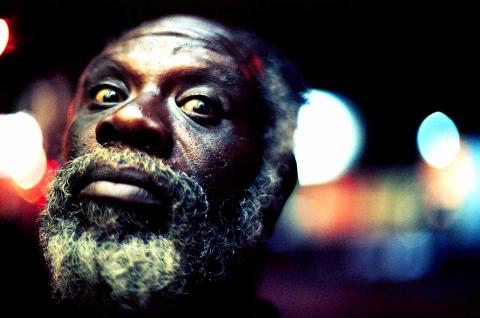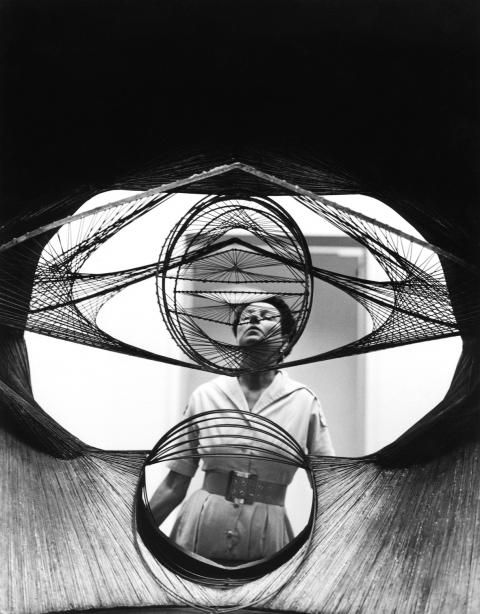When the Urban Nomad Film Fest (城市游牧影展) started out as a party among friends in 2002, few would expect it to last. Fifteen years after, the annual festival has grown to become an important cultural event, where people come to share, engage and have fun through a series of film screenings, discussions and parties.
As in the past, this year’s festival features some of the most hilarious and thought-provoking indie films, covering topics ranging from art and youth subcultures to activism and social justice.
HUMAN RIGHTS ACTIVISM

Photo courtesy of Urban Nomad Film Festival
US-based Chinese director Wang Nanfu’s (王男?) Hooligan Sparrow exposes government surveillance and corruption in China.
Following the screening on May 21, Wang will discuss the difficulties human rights activists in China face — government interrogation, harassment, imprisonment — as well as her own run-ins with authorities.
Act and activism go hand in hand in Art War, which follows four young Egyptian graffiti artists and musicians as they take part in the peaceful revolution during and after the 2011 Arab Spring.

Photo courtesy of Urban Nomad Film Festival
The documentary makes an engaging exploration of arts as a powerful means of resistance and conveying personal politics.
The film’s director Marco Wilms will attend the festival and discuss his work in post-screening Q&A sessions.
MUSIC FOR THE MASSES

Photos courtesy of Urban Nomad Film Festival
Activism aside, music enthusiasts also have plenty to choose from the festival’s lineup of over 60 feature, documentary, short and music video works from France, Germany, Canada, Cambodia, Taiwan, Hong Kong and the US.
Rubble Kings, for example, brings the audience back to the streets of New York under gang control in the late 1960s and early 1970s and tells the long forgotten story of how gang members decided to stop bloodshed by throwing block parties, which gave birth to hip-hop culture.
Fans of Motorhead, Rammstein, Anvil and the likes may want to check out Wacken: the Movie, which delivers an exciting portrait of Wacken Open Air, the biggest heavy-metal festival in the world.
Meanwhile, Mad Tiger zooms in on New York-based Peelander-Z, which describes itself as a “Japanese action comic punk band hailing from the Z area of Planet Peelander.”
On Sunday, several filmmakers and musicians from Germany, Taiwan and the UK will discuss the issue of documenting music.

In Taiwan there are two economies: the shiny high tech export economy epitomized by Taiwan Semiconductor Manufacturing Co (TSMC, 台積電) and its outsized effect on global supply chains, and the domestic economy, driven by construction and powered by flows of gravel, sand and government contracts. The latter supports the former: we can have an economy without TSMC, but we can’t have one without construction. The labor shortage has heavily impacted public construction in Taiwan. For example, the first phase of the MRT Wanda Line in Taipei, originally slated for next year, has been pushed back to 2027. The government

July 22 to July 28 The Love River’s (愛河) four-decade run as the host of Kaohsiung’s annual dragon boat races came to an abrupt end in 1971 — the once pristine waterway had become too polluted. The 1970 event was infamous for the putrid stench permeating the air, exacerbated by contestants splashing water and sludge onto the shore and even the onlookers. The relocation of the festivities officially marked the “death” of the river, whose condition had rapidly deteriorated during the previous decade. The myriad factories upstream were only partly to blame; as Kaohsiung’s population boomed in the 1960s, all household

Allegations of corruption against three heavyweight politicians from the three major parties are big in the news now. On Wednesday, prosecutors indicted Hsinchu County Commissioner Yang Wen-ke (楊文科) of the Chinese Nationalist Party (KMT), a judgment is expected this week in the case involving Hsinchu Mayor Ann Kao (高虹安) of the Taiwan People’s Party (TPP) and former deputy premier and Taoyuan Mayor Cheng Wen-tsan (鄭文燦) of the Democratic Progressive Party (DPP) is being held incommunicado in prison. Unlike the other two cases, Cheng’s case has generated considerable speculation, rumors, suspicions and conspiracy theories from both the pan-blue and pan-green camps.

Stepping inside Waley Art (水谷藝術) in Taipei’s historic Wanhua District (萬華區) one leaves the motorcycle growl and air-conditioner purr of the street and enters a very different sonic realm. Speakers hiss, machines whir and objects chime from all five floors of the shophouse-turned- contemporary art gallery (including the basement). “It’s a bit of a metaphor, the stacking of gallery floors is like the layering of sounds,” observes Australian conceptual artist Samuel Beilby, whose audio installation HZ & Machinic Paragenesis occupies the ground floor of the gallery space. He’s not wrong. Put ‘em in a Box (我們把它都裝在一個盒子裡), which runs until Aug. 18, invites